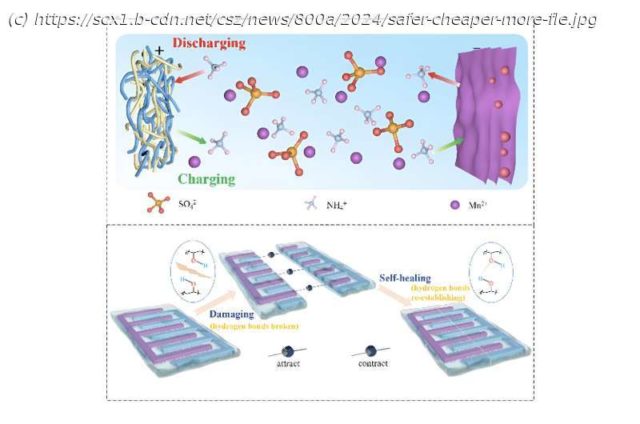Researchers have developed a safer, cheaper, better performing and more flexible battery option for wearable devices. A paper describing the „recipe“ for their new battery type was published in the journal Nano Research Energy on June 3.
Researchers have developed a safer, cheaper, better performing and more flexible battery option for wearable devices. A paper describing the „recipe“ for their new battery type was published in the journal Nano Research Energy on June 3.
Fitness trackers. Smart watches. Virtual-reality headsets. Even smart clothing and implants. Wearable smart devices are everywhere these days. But for greater comfort, reliability and longevity, these devices will require greater levels of flexibility and miniaturization of their energy storage mechanisms, which are often frustratingly bulky, heavy and fragile. On top of this, any improvements cannot come at the expense of safety.
As a result, in recent years, a great deal of battery research has focused on the development of „micro“ flexible energy storage devices, or MFESDs. A range of different structures and electrochemical foundations have been explored, and among them, aqueous micro batteries offer many distinct advantages.
Aqueous batteries—those that use a water-based solution as an electrolyte (the medium that allows transport of ions in the battery and thus creating an electric circuit) are nothing new. They have been around since the late 19th century.
However, their energy density—or the amount of energy contained in the battery per unit of volume—is too low for use in things like electric vehicles as they would take up too much space. Lithium-ion batteries are far more appropriate for such uses.






